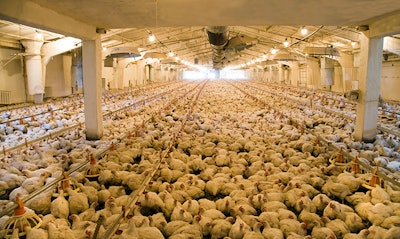
You wouldn’t necessarily think that a virologist and immunologist would be an authority on the topic of economics, but Dr. Matt Koci, professor of immunology, virology and host-pathogen interactions at North Carolina State University (NC State), recently made some pretty good points about how economically damaging it would be if the highly pathogenic avian influenza (HPAI) virus found in wild birds would spread into the state’s commercial poultry flocks.
The transcript of an interview with Koci appears on the NC State News webpage, and it is a good read.
He offered a lot of good information concerning the virus: how it can spread, how it can even spread into humans, how to prevent its spread and how there is zero risk of getting it by consuming chicken.
Yet it was his economic analysis that was potentially the most telling.
“It would be devastating if it got into commercial poultry in N.C. Poultry production in N.C. brings in over $4.7 billion, and that’s just from farm sales. When you factor in all the jobs around poultry production, processing, cooking, and consuming, the economic impact of poultry goes up to around $40 billion,” Koci said.
“And it’s not just dollars and cents. N.C. accounts for about 12% of all the poultry production in the United States. If you think grocery store shelves are sparse now, just think how much worse that could get if we lost 12% of the poultry meat and eggs in the U.S.”
I hope Koci’s interview is widely read. Avian influenza should be a topic of great concern for residents of the state, particularly because there have been 53 instances of HPAI being confirmed in hunter-harvested birds in the state thus far, with more positive tests expected. If people pay attention to his words and follow his recommendations, it can only help.
View our continuing coverage of the global avian influenza situation.

















